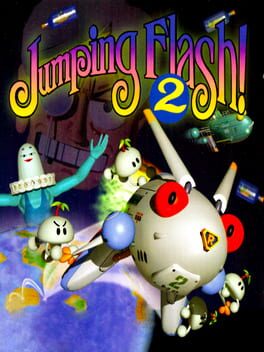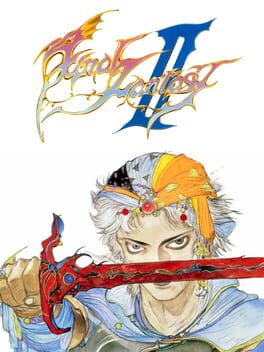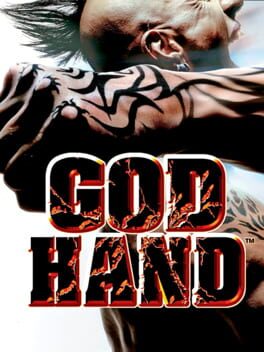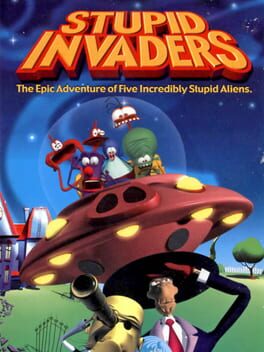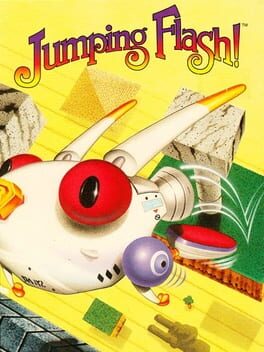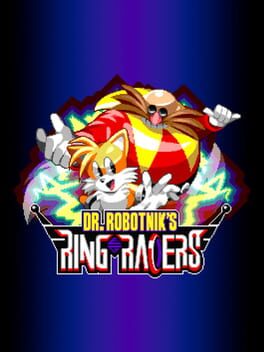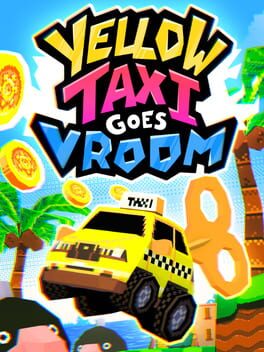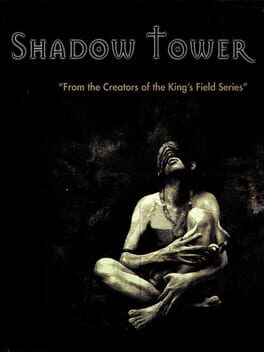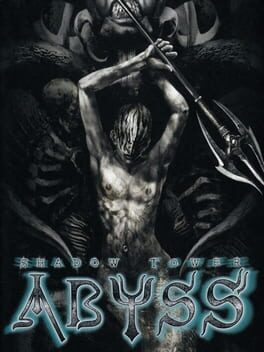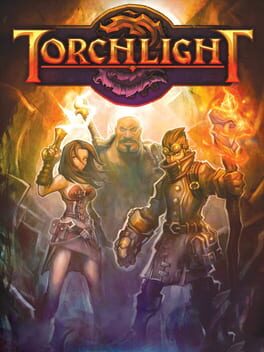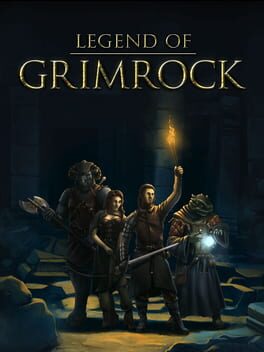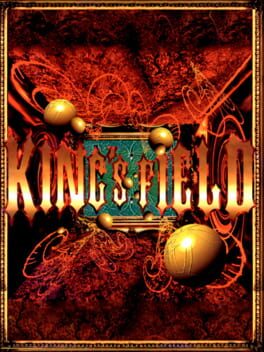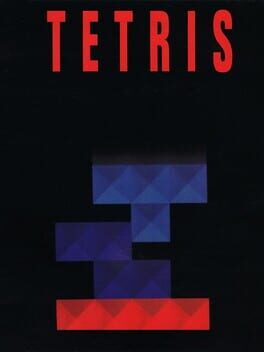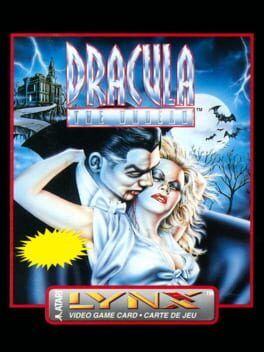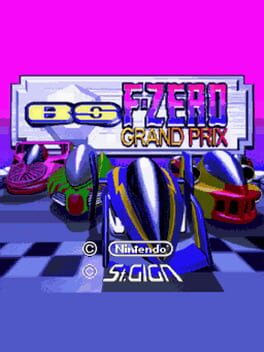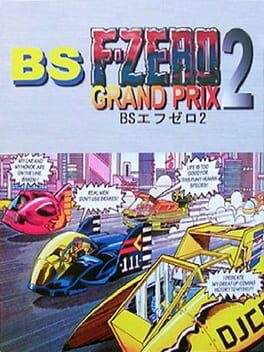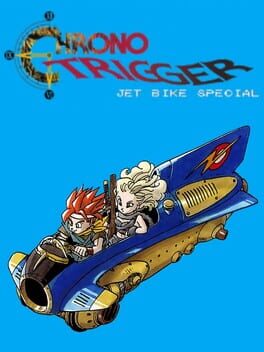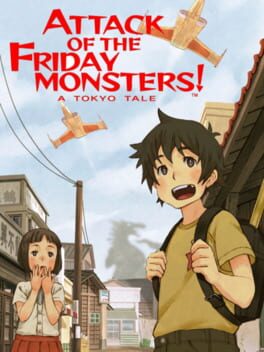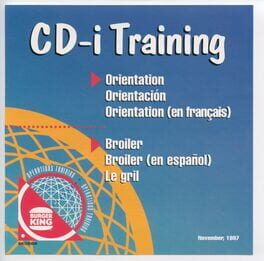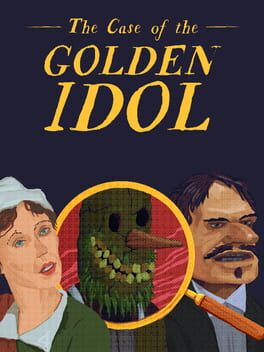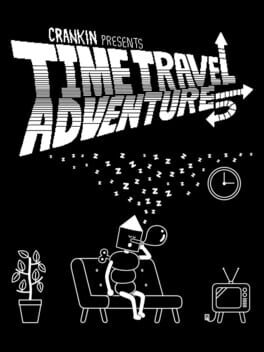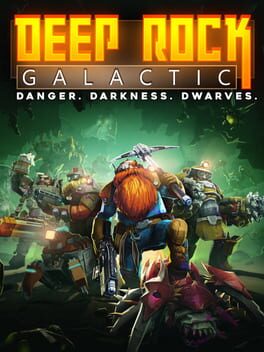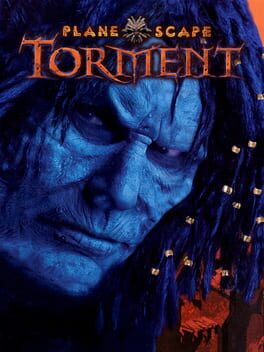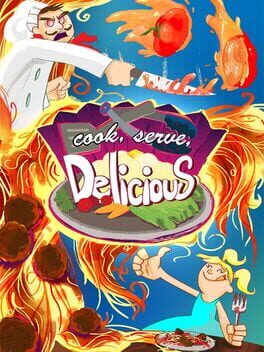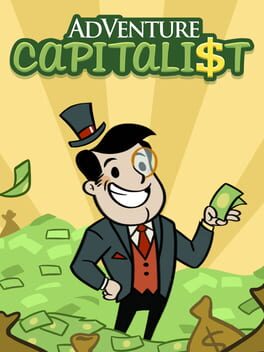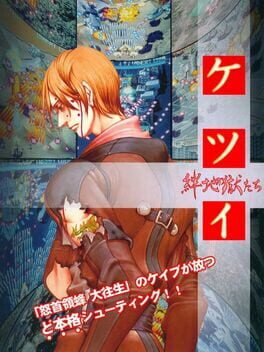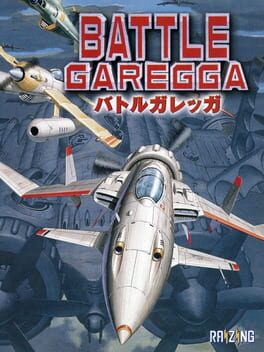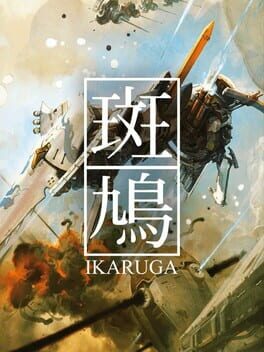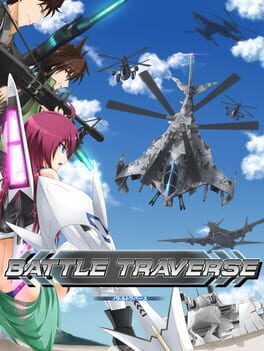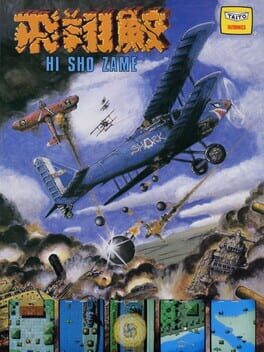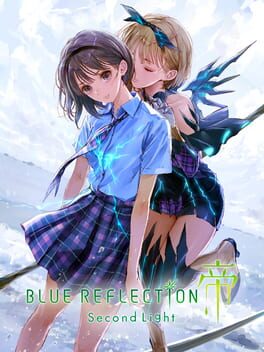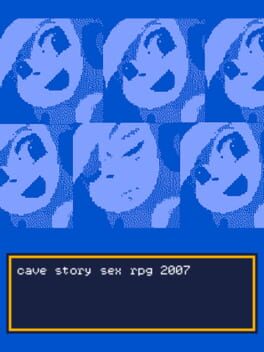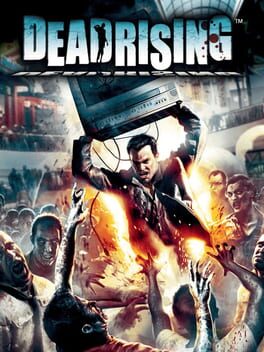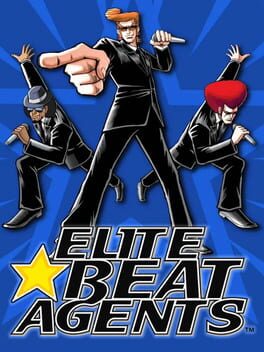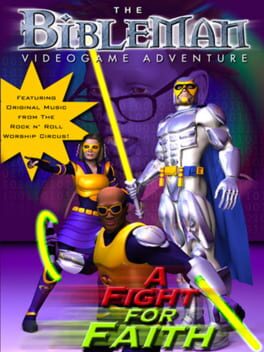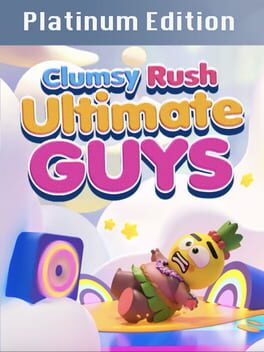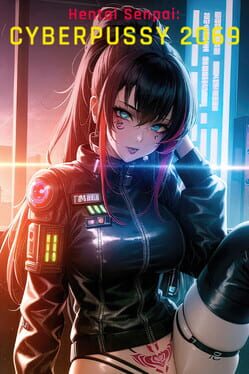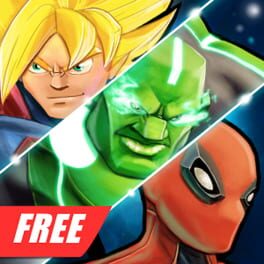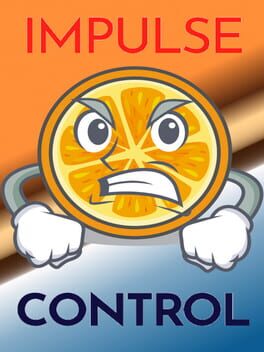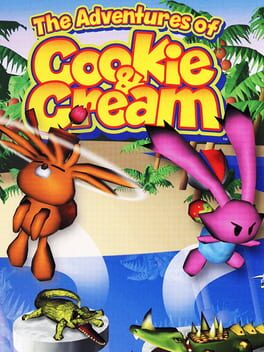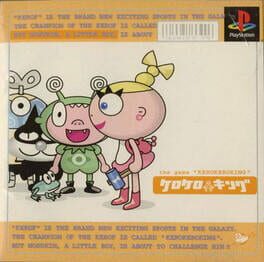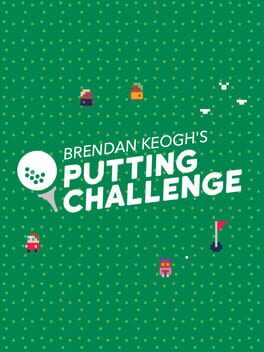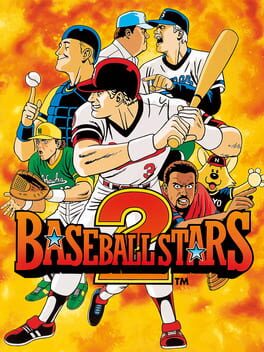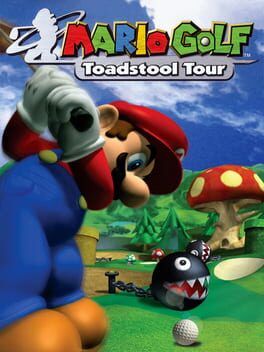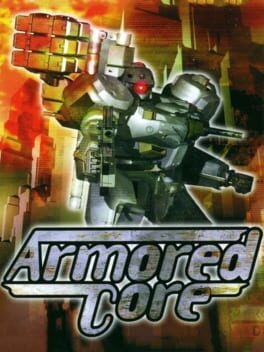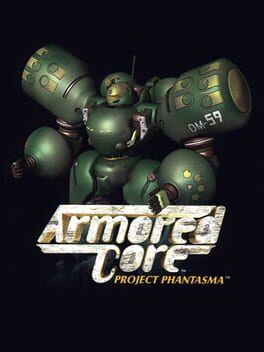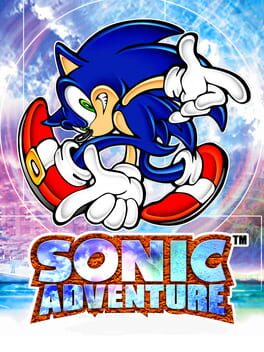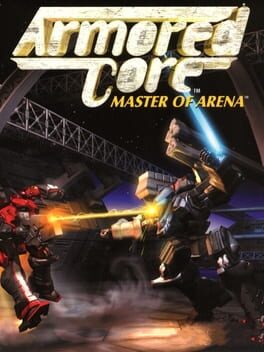smaench
745 reviews liked by smaench
Jumping Flash! 2
1996
Final Fantasy II
1988
When a friend first asked me how I would describe Final Fantasy II, I was about half way through the game, and had just met Leila. I didn’t really know how to describe it, it was something I couldn’t compare to anything I’d played before. It led me through the story like an early JRPG but with early WRPG mechanics. It was bizarre and completely threw me off from what I learned in FFI. So much of what I learned from the first game didn’t matter at all now, and what it was trying to teach me seemed almost alien. So of course, my natural response to my friend was a wary, “Have you ever played… Morrowind?”
Final Fantasy II is nothing like Morrowind. Well, it has its similarities, as comparing any game from the same genre to each other would, I guess. I came into Final Fantasy II having only the original Final Fantasy to compare it to… eh, within the Final Fantasy series at least, as I have played a handful of 3rd-gen RPGs before it. Maybe it’s why I ended up thinking of FFII so positively compared to others. Maybe that’s a negative, but I like to think of it as a positive. It keeps me thinking of FFII in the bubble it originally released to, but unfortunately that also lacks me being able to compare it to much else.
One thing I should warn before diving fully into the review is that I did play the game in Japanese, so some of the names for things might be spelled differently from my own personal transliteration vs other later official English translations (wait his name was Josef and not Joseph this whole time?!). The Famicom version I believe is also missing quite a few additions that future versions had added later on, including ones added even a couple years later in the Famicom dual-release of both FFI + FFII.
—------------------------------------------------------------
From first glance, I could immediately tell that Final Fantasy II had improved drastically from its predecessor. The creators were able to expand A LOT on what they made with the original. Just to list a few:
• You’re now able to fully go into buildings and walk around. You can even see little Firion sleeping in the inn!
• There's a crazy amount of new magic you can learn (which you see early on thanks to Ming Wu).
• You can now see your character’s negative status effects play as a funny symbol on top of them in battle (black glasses for blind, green swirls for poison, they literally turn into a rock when hit with the stone status!). It looks great and makes it easier for players to remember what exactly the current status of their party is just at a glance.
• The character designs are more varied and more detailed, even if Firion is just the fighter sprite from the first game. With Maria, we can now see our first true playable female character in the series, rather than the assumed fully-male cast of the first (or at least that’s how the English guidebook describes the cast which uh, infamously got quite a few things wrong about the game, so take that as you will LOL). You meet a very colorful cast of characters right at the start as well, with a good amount having fairly unique designs (Ming Wu is my favorite)!
• Lastly, the thing I noticed and was so happy to see was that you can now save whenever you want. Well, whenever you’re on the overworld map. But, still! It’s a button that’s always on your menu screen. You don’t have to bank on having a hotel or cottage in your pocket so you can save before a dungeon, which can make expeditions infinitely less frustrating.
The story of FFII is surprisingly engaging for a 3rd-gen game, with it starting out with a 5 minute long interactive cutscene kinda thing. Watching it, you quickly learn that you now have a set story with characters that have a set destiny. You can name them and train them to be whatever you want, but no matter what, the story has a path it will always take with characters you can’t always predict. Oh boy, how you can not predict. About 2/3rds of the temporary party members who join you end up dying! Even NPCs you don’t interact with too often end up dying! But hey, the story does focus around war, and what’s war without loss. Though more realistically, I imagine they killed off a majority of your short-term party members as a way to cycle through different characters and show the player different builds they themselves could evolve on. My favorite non-player characters that I met along the way were Paul the Ninja, and Sid and his son, who offer a shuttle with their flying boat not unlike the one from the first game… hey wait, why does Sid have his clearly underaged son in a bar? Oh well, it works for the story. Just try not to think about it!
There’s little things I can nitpick though, of course. I absolutely hate the new map. I understand this map is WAY bigger than the last, and the illusion of the globe allows them to fit more with less, but holy shit its soooo slow - and if I just want to check what direction I want to go to reach a dungeon, I have to slowlyyyyyyy wait for the globe to turnnn and inchhhh and oooo we’re almost there, baby!!!! Well, this shouldn’t be a problem, right? Final Fantasy I, Dragon Quest, Legend of Zelda are all games that provide a full map for you in the manual to glance at, so there must be one in this manual- nope. Okay, what about the guidebook? You know, the thing you spend extra money on to hold your hand and show you how to get through the whole game- nope. There’s no maps at all actually, even for the dungeons! Remember how Final Fantasy I had big maps for the player to scan through for everything, all within the manual packaged with the game? Well, Final Fantasy II says “Fuck you, why don’t you figure out,” as they hand you Slowpoke Rodriguez’s favorite class globe.
The manual and guidebook at least are very useful in including every little detail about the new leveling system, and also informing the player on what all the new magic does. A stupid complaint, but skimming through this lovely mapless guidebook, I was excited to see Chocobos appear, which are like giant chickens your player can ride on! Unfortunately, I never ran into them once throughout the entire game. They seemed cute, and the book says you can find them in a specific forest if you wander, but I never found one, even when purposefully looking for them. Oh well, maybe I was just unlucky!
Wait, that’s it? Those are the only complaints? It seems like FFII should smell like roses in comparison to FFI after all that, shouldn’t it? Well, it does…! It does, except for one very small, very tiny detail…
GAMEPLAY AND RPG MECHANICS
FFII doesn’t level in the way that Dragon Quest or even the original Final Fantasy do. In fact, the closest comparison I can personally make to a game that I’ve played that came out before FFII is regular tabletop DND. When you want to level up, you have to focus on a specific skill or trait. It’s not as simple as leveling up your magic to improve your magic; you have to focus on what exactly you want to level up in your magic. Did you want your magic attack to be stronger? Then focus on using the specific spell you want to be stronger, as the more you use it the more it levels up. Did you need more MP? Then use more magic to get more magic! Using magic in general also helps level up your magic strength… but specifically your intelligence or spirit which correlate to your black and white magic respectively. See where I got the Morrowind comparison? It’s a lot, but as you can see with my magic example, a lot of it relies on each other, so if you play naturally, you should still level up naturally like you would in FF1.
That would be all fine and dandy, except you don’t level up the way the creators intended. I don’t know whose idea it was to go against the golden rule for JRPGs since Dragon Quest: Allow players to level up quickly with the game requiring more points to level up the further they play. For example, to get to level 2 in… let’s say using a sword, maybe you need to use it 10 times before it reaches level 2. After that, then you need to use it 20 times to reach level 3, and so far so forth. FFII doesn’t do that, and I think that’s where its biggest flaw shows. It requires you to use whatever it is you want 100 times each time you want to level it up, all from the start. It’s awful, to put it lightly. The great thing to remember is all the Final Fantasys on the Famicom are insanely broken! As a result, I quickly found out that you can input a move on a party member and quickly cancel it and do it again. It only takes one move but it still counts the first use, essentially doubling the points I get from it. Do this 50 times, and you just leveled yourself up in one battle. Though of course, it’s just that one thing you leveled up, whether that be a magic skill, your attack, defense, HP, MP, or whatever else you focused on. It unfortunately also can mess with the leveling a crazy amount as well. Ugh, just think! This would be significantly less of a problem if they just followed the guide of leveling-up starting fast only to slow it down the further you go. They did it in FFI, so they must have found an issue to force the mandatory 100 points for FFII… On top of that all, the same issues with magic in FFI still exist in FFII, with a nice chunk of spells being completely broken and not working the way they intended. Most infamously it affects Ultima, a spell intended to be the most powerful in the entire game. The only way to figure out what works and what doesn’t is through trial and error- how horrendous! Thankfully, we live in the future, so I was able to quickly find a guide online that lets modern players know what magic to not waste their time on.
This is the biggest turn-off of Final Fantasy II to players, and I don’t blame them. I especially don’t blame players who had to try and figure out everything without the manual guiding them through this incredibly involved leveling system. I found the manual and guidebook for FFII on Internet Archive, and even with that by my side I constantly had to look at it over and over to remember what exactly I had to do to level-up myself up. Eventually, I just wrote and drew a shitty guide just for myself so I could more easily memorize it. In the end, I got there! Then I had to read and memorize all the new magic spells! Oh, well. As someone who loves journaling and taking notes, I really didn’t mind it, but of course I can understand how unbearable it could be for someone who doesn’t like it. It reminded me, again, of tabletop gaming and how when I play that with friends, I often fill a whole booklet with my little notes. Maybe I was used to it? Maybe I just felt it immersed me better into the story, and helped me feel more understanding of how the gameplay meshed with the narrative. In the end, it helped me gain a bit of an emotional attachment to it all; characters and game mechanics alike.
—------------------------------------------------------------
Well, how would I compare it to my friend now, after finishing it? I’ve been told the Romancing Saga series takes heavy inspiration from it mechanically, and by the time I finished I could see the Star Wars parallels loud and clear. Obviously, it has its Wizardry, Ultima, and Dragon Quest influences… What didn’t back then? But how would I describe FF2?
It’s broken, it’s unreliable, it’s confusing. But it’s also rewarding, emotional, and easy to get wrapped into. It tried crazy things for both the time and platform it released on, but it found its people, and its people found it.
Final Fantasy II is like Final Fantasy II. You wanna know what THAT means? Well, play it and you’ll find out!
4/5
Final Fantasy II is nothing like Morrowind. Well, it has its similarities, as comparing any game from the same genre to each other would, I guess. I came into Final Fantasy II having only the original Final Fantasy to compare it to… eh, within the Final Fantasy series at least, as I have played a handful of 3rd-gen RPGs before it. Maybe it’s why I ended up thinking of FFII so positively compared to others. Maybe that’s a negative, but I like to think of it as a positive. It keeps me thinking of FFII in the bubble it originally released to, but unfortunately that also lacks me being able to compare it to much else.
One thing I should warn before diving fully into the review is that I did play the game in Japanese, so some of the names for things might be spelled differently from my own personal transliteration vs other later official English translations (wait his name was Josef and not Joseph this whole time?!). The Famicom version I believe is also missing quite a few additions that future versions had added later on, including ones added even a couple years later in the Famicom dual-release of both FFI + FFII.
—------------------------------------------------------------
From first glance, I could immediately tell that Final Fantasy II had improved drastically from its predecessor. The creators were able to expand A LOT on what they made with the original. Just to list a few:
• You’re now able to fully go into buildings and walk around. You can even see little Firion sleeping in the inn!
• There's a crazy amount of new magic you can learn (which you see early on thanks to Ming Wu).
• You can now see your character’s negative status effects play as a funny symbol on top of them in battle (black glasses for blind, green swirls for poison, they literally turn into a rock when hit with the stone status!). It looks great and makes it easier for players to remember what exactly the current status of their party is just at a glance.
• The character designs are more varied and more detailed, even if Firion is just the fighter sprite from the first game. With Maria, we can now see our first true playable female character in the series, rather than the assumed fully-male cast of the first (or at least that’s how the English guidebook describes the cast which uh, infamously got quite a few things wrong about the game, so take that as you will LOL). You meet a very colorful cast of characters right at the start as well, with a good amount having fairly unique designs (Ming Wu is my favorite)!
• Lastly, the thing I noticed and was so happy to see was that you can now save whenever you want. Well, whenever you’re on the overworld map. But, still! It’s a button that’s always on your menu screen. You don’t have to bank on having a hotel or cottage in your pocket so you can save before a dungeon, which can make expeditions infinitely less frustrating.
The story of FFII is surprisingly engaging for a 3rd-gen game, with it starting out with a 5 minute long interactive cutscene kinda thing. Watching it, you quickly learn that you now have a set story with characters that have a set destiny. You can name them and train them to be whatever you want, but no matter what, the story has a path it will always take with characters you can’t always predict. Oh boy, how you can not predict. About 2/3rds of the temporary party members who join you end up dying! Even NPCs you don’t interact with too often end up dying! But hey, the story does focus around war, and what’s war without loss. Though more realistically, I imagine they killed off a majority of your short-term party members as a way to cycle through different characters and show the player different builds they themselves could evolve on. My favorite non-player characters that I met along the way were Paul the Ninja, and Sid and his son, who offer a shuttle with their flying boat not unlike the one from the first game… hey wait, why does Sid have his clearly underaged son in a bar? Oh well, it works for the story. Just try not to think about it!
There’s little things I can nitpick though, of course. I absolutely hate the new map. I understand this map is WAY bigger than the last, and the illusion of the globe allows them to fit more with less, but holy shit its soooo slow - and if I just want to check what direction I want to go to reach a dungeon, I have to slowlyyyyyyy wait for the globe to turnnn and inchhhh and oooo we’re almost there, baby!!!! Well, this shouldn’t be a problem, right? Final Fantasy I, Dragon Quest, Legend of Zelda are all games that provide a full map for you in the manual to glance at, so there must be one in this manual- nope. Okay, what about the guidebook? You know, the thing you spend extra money on to hold your hand and show you how to get through the whole game- nope. There’s no maps at all actually, even for the dungeons! Remember how Final Fantasy I had big maps for the player to scan through for everything, all within the manual packaged with the game? Well, Final Fantasy II says “Fuck you, why don’t you figure out,” as they hand you Slowpoke Rodriguez’s favorite class globe.
The manual and guidebook at least are very useful in including every little detail about the new leveling system, and also informing the player on what all the new magic does. A stupid complaint, but skimming through this lovely mapless guidebook, I was excited to see Chocobos appear, which are like giant chickens your player can ride on! Unfortunately, I never ran into them once throughout the entire game. They seemed cute, and the book says you can find them in a specific forest if you wander, but I never found one, even when purposefully looking for them. Oh well, maybe I was just unlucky!
Wait, that’s it? Those are the only complaints? It seems like FFII should smell like roses in comparison to FFI after all that, shouldn’t it? Well, it does…! It does, except for one very small, very tiny detail…
GAMEPLAY AND RPG MECHANICS
FFII doesn’t level in the way that Dragon Quest or even the original Final Fantasy do. In fact, the closest comparison I can personally make to a game that I’ve played that came out before FFII is regular tabletop DND. When you want to level up, you have to focus on a specific skill or trait. It’s not as simple as leveling up your magic to improve your magic; you have to focus on what exactly you want to level up in your magic. Did you want your magic attack to be stronger? Then focus on using the specific spell you want to be stronger, as the more you use it the more it levels up. Did you need more MP? Then use more magic to get more magic! Using magic in general also helps level up your magic strength… but specifically your intelligence or spirit which correlate to your black and white magic respectively. See where I got the Morrowind comparison? It’s a lot, but as you can see with my magic example, a lot of it relies on each other, so if you play naturally, you should still level up naturally like you would in FF1.
That would be all fine and dandy, except you don’t level up the way the creators intended. I don’t know whose idea it was to go against the golden rule for JRPGs since Dragon Quest: Allow players to level up quickly with the game requiring more points to level up the further they play. For example, to get to level 2 in… let’s say using a sword, maybe you need to use it 10 times before it reaches level 2. After that, then you need to use it 20 times to reach level 3, and so far so forth. FFII doesn’t do that, and I think that’s where its biggest flaw shows. It requires you to use whatever it is you want 100 times each time you want to level it up, all from the start. It’s awful, to put it lightly. The great thing to remember is all the Final Fantasys on the Famicom are insanely broken! As a result, I quickly found out that you can input a move on a party member and quickly cancel it and do it again. It only takes one move but it still counts the first use, essentially doubling the points I get from it. Do this 50 times, and you just leveled yourself up in one battle. Though of course, it’s just that one thing you leveled up, whether that be a magic skill, your attack, defense, HP, MP, or whatever else you focused on. It unfortunately also can mess with the leveling a crazy amount as well. Ugh, just think! This would be significantly less of a problem if they just followed the guide of leveling-up starting fast only to slow it down the further you go. They did it in FFI, so they must have found an issue to force the mandatory 100 points for FFII… On top of that all, the same issues with magic in FFI still exist in FFII, with a nice chunk of spells being completely broken and not working the way they intended. Most infamously it affects Ultima, a spell intended to be the most powerful in the entire game. The only way to figure out what works and what doesn’t is through trial and error- how horrendous! Thankfully, we live in the future, so I was able to quickly find a guide online that lets modern players know what magic to not waste their time on.
This is the biggest turn-off of Final Fantasy II to players, and I don’t blame them. I especially don’t blame players who had to try and figure out everything without the manual guiding them through this incredibly involved leveling system. I found the manual and guidebook for FFII on Internet Archive, and even with that by my side I constantly had to look at it over and over to remember what exactly I had to do to level-up myself up. Eventually, I just wrote and drew a shitty guide just for myself so I could more easily memorize it. In the end, I got there! Then I had to read and memorize all the new magic spells! Oh, well. As someone who loves journaling and taking notes, I really didn’t mind it, but of course I can understand how unbearable it could be for someone who doesn’t like it. It reminded me, again, of tabletop gaming and how when I play that with friends, I often fill a whole booklet with my little notes. Maybe I was used to it? Maybe I just felt it immersed me better into the story, and helped me feel more understanding of how the gameplay meshed with the narrative. In the end, it helped me gain a bit of an emotional attachment to it all; characters and game mechanics alike.
—------------------------------------------------------------
Well, how would I compare it to my friend now, after finishing it? I’ve been told the Romancing Saga series takes heavy inspiration from it mechanically, and by the time I finished I could see the Star Wars parallels loud and clear. Obviously, it has its Wizardry, Ultima, and Dragon Quest influences… What didn’t back then? But how would I describe FF2?
It’s broken, it’s unreliable, it’s confusing. But it’s also rewarding, emotional, and easy to get wrapped into. It tried crazy things for both the time and platform it released on, but it found its people, and its people found it.
Final Fantasy II is like Final Fantasy II. You wanna know what THAT means? Well, play it and you’ll find out!
4/5
Live A Live
2022
I really do hate feeling that I’m undervaluing effort. If anything, I should probably have just played a fantranslation of the original Live A Live, so that I could feel a little more as though this game’s web of genre anthologism was particularly formally impressive or functionally experimental. It’s a little personally embarrassing how much slack I’m willing to give older gens for breaking their spines over ambitious systems I take for granted nowadays, and narratives I’d find quaint in anything released now. I want to lay blame on Octopath’o’vision more than anything.
Live A Live’s cool, I won’t deny - the individual cinematic reverence to which each of these chapters are framed, the unique ways their characters express themselves thru bespoke mechanics like Pogo’s rudimentary crafting & hunting, Shifu’s already capped level & disciple training, Akira’s overworld psi abilities… I just don’t think there’s enough meat on any of this game’s bones for me to feel strongly either way about any of the stories, let alone for the final act to even feel self-justified that its cast have the capability to act as convincing anti-hate thesis statements - and not simply an extension of what Live A Live always does; falling back to the motions of genre.
Playing through Square’s library has made me feel incredibly assured in their ambitions and creativity, kindling much of what I find so mysterious and evocative about the JRPG genre. Games that spin themselves wildly into their own neuroses and bloom into an orchard of mechanics and character dynamics we’re today still only barely reaching similar heights of. To me. Live A Live feels like a demo disk or something of that mission statement, glimpses into their process but, too brief for hooks to really set in.
Live A Live’s cool, I won’t deny - the individual cinematic reverence to which each of these chapters are framed, the unique ways their characters express themselves thru bespoke mechanics like Pogo’s rudimentary crafting & hunting, Shifu’s already capped level & disciple training, Akira’s overworld psi abilities… I just don’t think there’s enough meat on any of this game’s bones for me to feel strongly either way about any of the stories, let alone for the final act to even feel self-justified that its cast have the capability to act as convincing anti-hate thesis statements - and not simply an extension of what Live A Live always does; falling back to the motions of genre.
Playing through Square’s library has made me feel incredibly assured in their ambitions and creativity, kindling much of what I find so mysterious and evocative about the JRPG genre. Games that spin themselves wildly into their own neuroses and bloom into an orchard of mechanics and character dynamics we’re today still only barely reaching similar heights of. To me. Live A Live feels like a demo disk or something of that mission statement, glimpses into their process but, too brief for hooks to really set in.
God Hand
2006
"Character action" has never done it for me. I feel the floaty combos and distant cameras really dampen the impact of combat. I'm so glad that we live in the timeline where instead of representing the future of the Resident Evil series, Devil May Cry became its own franchise. Resident Evil 4 was a game that Capcom attempted to make several times, before begging Mikami to come back to the director's seat, and even he scrapped a couple of false starts before he settled on the game he ought to be making. The change in camera was the big thing that players talked about, but it was the shift in focus and tone that really made Resi 4 so beloved by its biggest fans. Mikami had gained skill, establishing multiple complementary mechanics and tying that to a campaign, but he was also more confident in his own sense of humour and whimsy. Resi 4 was a game with a real sense of personality, but it was compromised by the pressures of the surrounding franchise, the publisher and the fanbase. For his next game, he'd disregard all these aspects and make it entirely for himself.
When I first played God Hand, it took about five seconds before I knew I loved it. It's very much built on the back of Resi 4, but makes no apologies for its eccentricities. It takes the weight and impact of Resident Evil 4's shotgun and puts that behind each punch. Resi 4 utilised the sensibilities of modern games just enough to adopt a mostly useless camera manipulation system to the right analogue stick, but God Hand foregoes those conventions entirely, tethering it to your critical dodge system. God Hand doesn't care about any other game. It's fully confident in what it's doing.
God Hand's vibe is a very divisive thing, and not something you can choose to opt out of, but a truly cultured mind will undoubtedly side with it. Its sense of humour comes from a very specific place. It's a deep affection for Fist of the North Star and low-budget 70s kung fu films, but there's so much fondness for late-80s and early-90s action games, too. It loves the ridiculous, digitised voice clips from Altered Beast and Final Fight. The greatest joy is when you encounter an absurd, one-off, late-game disco miniboss, and he hits you with the same audio clips as the standard grunts from Level 1. This is a game full of explosive barrels and giant fruit. Shinji Mikami started production on Resident Evil 4 trying to fulfil the obligation to make his scariest game ever, and by the end, he got so bored with that direction that he created a giant stone robot Salazar that chased you through brick walls. God Hand was the logical next step for him.
There's a focus to God Hand's ambitions that implies Clover really knew what they had with it. A few ridiculous bosses and minigames notwithstanding, the levels are typically fairly boxy and nondescript. All the attention is on the distribution of enemies and items. It's spectacularly un-fancy. Flat ground and big brick walls that disappear when the camera gets too close to them. It doesn't care. The fighting feels great, and we're having a great time with all these stupid baddies. Fuck everything else.
Your moveset is fully customisable. Between levels, you're given the opportunity to buy new moves, and apply them to your controls, either as specials tethered to a specific button combination, or even as part of the standard combo you get while mashing the square button. It offers players real versatility as they figure out their preferred playstyles, and what works for them, while trying something less intuitive can open you up to new approaches. There are quick kicks and punches that overwhelm opponents, heavy-damage moves that take longer to pull off, guard breaks, and long-range attacks that can help with crowd control. There are certain moves and dodges that are highly exploitable, and risk breaking the game's balance. Clover are aware of this though, and whenever they found a strategy that made the game boring, they made sure to penalise you for using it by boosting the difficulty massively whenever you try it.
That's the big feature. The difficulty. God Hand starts out really hard, and when the game registers that you've dodged too many attacks or landed too many successive hits, it gets harder. This was a secret system in Resi 4, but in God Hand, it's part of your on-screen HUD, always letting you know when you've raised or lowered a difficulty level. Enemies hit harder, health pick-ups drop less frequently, and attacks become harder to land. The game's constantly drawing you to the edge of your abilities, and if you die, you have to try the entire section again from the start. It never feels too dispiriting, though. You retain all cash you've picked up after you died, and you feel encouraged by a drop in difficulty. If you do well enough on your next attempt, it won't take long before the difficulty gets back to where it was. There's also some fun surprises for those who get good enough to maintain a Level 3 or Level Die streak for long enough, with some special enemy spawns and stuff. You feel rewarded for getting good, but never patronised or pandered to. Your reward is a game that felt as thrilling as it did when you first tried it.
It's the little eccentricities in God Hand's design that I really admire. Pick up a barrel and Gene will instantly shift his direction to the nearest enemy, eliminating any extraneous aiming bullshit, and pushing your attention towards the opportunity for some cheap long-distance damage. If an item spawns, it remains there until you pick it up, giving you the opportunity to save it for when you really need it, even if the backtracking route becomes a little ridiculous. Since the camera is so stubbornly committed to viewing Gene's back, they've implemented a radar system to keep track of surrounding enemies, and it makes little sense in the context of the scenario, but the game doesn't care about that stuff. It's another thing that makes the fights against gorillas and rock stars more fun, so run with it. Between each section of the game, you're given the opportunity to save, or warp to a kind of mid-game hub world, with a shop, training area and casino, which you can use to unlock better moves and upgrades when you need them most. You can gain money by taking the honest route and chipping away at its toughest challenges, or take the less honourable route with slot machines and gambling on poison chihuahua races. It's blunt, utilitarian, and it's entirely complementary to the way God Hand feels to play.
It's the consistency in tone and intention that completes the package. God Hand knows what it is, and how it feels, and it never betrays that. It doesn't obsess over lore or characters, but it really has fun in introducing new baddies and scenarios to put you in. And I really like its taste. I like that all the big bosses meet up at a secret hell table to exchange barbs between levels. I like the fight on an enormous Venetian gondola. I like the dumb, weird, repetitive soundtrack. The developers are world-class talents, and they just wanted to make a dumb, stupid, fun game.
I probably ought to give the soundtrack a little more credit. This is from Masafumi Takada, out on loan from Grasshopper Manufacture before he became a real gun for hire, working on Vanquish, Kid Icarus: Uprising, Danganronpa and Smash Bros Ultimate. He's great at elaborate, high-energy compositions, but his work on God Hand is some of his dumbest stuff. It's great. The constant Miami 5-0 surf rock, the warbling Elvis boss fight music, and the Flight of the Bumblebee guitar for the fight against a giant fly. He's having the time of his life on this one, fully liberated from the pressures to convey a consistent tone or atmosphere. It's stunning work, and he makes the correct call every time he has to write a new piece of BGM for God Hand.
Shinij Mikami is a bit of an enigma, and his work on Resident Evil has unfortunately typecast him as a horror director, but he's never expressed a real affinity for the genre. He was put into that position under an obligation to Ghouls 'n Ghosts' Tokuro Fujiwara, and the game he ended up making was full of corny heroes and giant snakes. The subject matter was a shock to audiences in the mid-nineties, but in reality, it wasn't that far removed from his work on SNES Aladdin. By my estimation, God Hand's the closest we've come to seeing the real Mikami through his work. He's made Resident Evil 4, and he wants to leave that behind him, but EA and ZeniMax kept dragging him back to his biggest hit.
God Hand feels like the only point in history God Hand could have happened, and it's pretty wild that it did in the first place. I mean, it makes sense that once you hand Capcom the Resi 4 Gold Master disc, they'll let you do whatever you want, but they were so rattled by the result that they fired all of their key talent and started making calls to Canada to produce Dead Rising 2. Confidence in Japanese development was at an all-time low after 2006, and the PS3 and Xbox 360 resulted in some of the most embarrassing entries in many legacy franchises. The PlayStation was born out of a SNES project, and that ethos was what drove the first decade of Sony Computer Entertainment. Afterwards, a new game proposal would not be greenlit without referencing the design of the latest Grand Theft Auto. The Konami, Namco, Square and Capcom that we have today don't reflect who they were in the nineties and early 2000s. To me, God Hand feels like the final page of that chapter. But, man, what a fucking statement to close out on.
When I first played God Hand, it took about five seconds before I knew I loved it. It's very much built on the back of Resi 4, but makes no apologies for its eccentricities. It takes the weight and impact of Resident Evil 4's shotgun and puts that behind each punch. Resi 4 utilised the sensibilities of modern games just enough to adopt a mostly useless camera manipulation system to the right analogue stick, but God Hand foregoes those conventions entirely, tethering it to your critical dodge system. God Hand doesn't care about any other game. It's fully confident in what it's doing.
God Hand's vibe is a very divisive thing, and not something you can choose to opt out of, but a truly cultured mind will undoubtedly side with it. Its sense of humour comes from a very specific place. It's a deep affection for Fist of the North Star and low-budget 70s kung fu films, but there's so much fondness for late-80s and early-90s action games, too. It loves the ridiculous, digitised voice clips from Altered Beast and Final Fight. The greatest joy is when you encounter an absurd, one-off, late-game disco miniboss, and he hits you with the same audio clips as the standard grunts from Level 1. This is a game full of explosive barrels and giant fruit. Shinji Mikami started production on Resident Evil 4 trying to fulfil the obligation to make his scariest game ever, and by the end, he got so bored with that direction that he created a giant stone robot Salazar that chased you through brick walls. God Hand was the logical next step for him.
There's a focus to God Hand's ambitions that implies Clover really knew what they had with it. A few ridiculous bosses and minigames notwithstanding, the levels are typically fairly boxy and nondescript. All the attention is on the distribution of enemies and items. It's spectacularly un-fancy. Flat ground and big brick walls that disappear when the camera gets too close to them. It doesn't care. The fighting feels great, and we're having a great time with all these stupid baddies. Fuck everything else.
Your moveset is fully customisable. Between levels, you're given the opportunity to buy new moves, and apply them to your controls, either as specials tethered to a specific button combination, or even as part of the standard combo you get while mashing the square button. It offers players real versatility as they figure out their preferred playstyles, and what works for them, while trying something less intuitive can open you up to new approaches. There are quick kicks and punches that overwhelm opponents, heavy-damage moves that take longer to pull off, guard breaks, and long-range attacks that can help with crowd control. There are certain moves and dodges that are highly exploitable, and risk breaking the game's balance. Clover are aware of this though, and whenever they found a strategy that made the game boring, they made sure to penalise you for using it by boosting the difficulty massively whenever you try it.
That's the big feature. The difficulty. God Hand starts out really hard, and when the game registers that you've dodged too many attacks or landed too many successive hits, it gets harder. This was a secret system in Resi 4, but in God Hand, it's part of your on-screen HUD, always letting you know when you've raised or lowered a difficulty level. Enemies hit harder, health pick-ups drop less frequently, and attacks become harder to land. The game's constantly drawing you to the edge of your abilities, and if you die, you have to try the entire section again from the start. It never feels too dispiriting, though. You retain all cash you've picked up after you died, and you feel encouraged by a drop in difficulty. If you do well enough on your next attempt, it won't take long before the difficulty gets back to where it was. There's also some fun surprises for those who get good enough to maintain a Level 3 or Level Die streak for long enough, with some special enemy spawns and stuff. You feel rewarded for getting good, but never patronised or pandered to. Your reward is a game that felt as thrilling as it did when you first tried it.
It's the little eccentricities in God Hand's design that I really admire. Pick up a barrel and Gene will instantly shift his direction to the nearest enemy, eliminating any extraneous aiming bullshit, and pushing your attention towards the opportunity for some cheap long-distance damage. If an item spawns, it remains there until you pick it up, giving you the opportunity to save it for when you really need it, even if the backtracking route becomes a little ridiculous. Since the camera is so stubbornly committed to viewing Gene's back, they've implemented a radar system to keep track of surrounding enemies, and it makes little sense in the context of the scenario, but the game doesn't care about that stuff. It's another thing that makes the fights against gorillas and rock stars more fun, so run with it. Between each section of the game, you're given the opportunity to save, or warp to a kind of mid-game hub world, with a shop, training area and casino, which you can use to unlock better moves and upgrades when you need them most. You can gain money by taking the honest route and chipping away at its toughest challenges, or take the less honourable route with slot machines and gambling on poison chihuahua races. It's blunt, utilitarian, and it's entirely complementary to the way God Hand feels to play.
It's the consistency in tone and intention that completes the package. God Hand knows what it is, and how it feels, and it never betrays that. It doesn't obsess over lore or characters, but it really has fun in introducing new baddies and scenarios to put you in. And I really like its taste. I like that all the big bosses meet up at a secret hell table to exchange barbs between levels. I like the fight on an enormous Venetian gondola. I like the dumb, weird, repetitive soundtrack. The developers are world-class talents, and they just wanted to make a dumb, stupid, fun game.
I probably ought to give the soundtrack a little more credit. This is from Masafumi Takada, out on loan from Grasshopper Manufacture before he became a real gun for hire, working on Vanquish, Kid Icarus: Uprising, Danganronpa and Smash Bros Ultimate. He's great at elaborate, high-energy compositions, but his work on God Hand is some of his dumbest stuff. It's great. The constant Miami 5-0 surf rock, the warbling Elvis boss fight music, and the Flight of the Bumblebee guitar for the fight against a giant fly. He's having the time of his life on this one, fully liberated from the pressures to convey a consistent tone or atmosphere. It's stunning work, and he makes the correct call every time he has to write a new piece of BGM for God Hand.
Shinij Mikami is a bit of an enigma, and his work on Resident Evil has unfortunately typecast him as a horror director, but he's never expressed a real affinity for the genre. He was put into that position under an obligation to Ghouls 'n Ghosts' Tokuro Fujiwara, and the game he ended up making was full of corny heroes and giant snakes. The subject matter was a shock to audiences in the mid-nineties, but in reality, it wasn't that far removed from his work on SNES Aladdin. By my estimation, God Hand's the closest we've come to seeing the real Mikami through his work. He's made Resident Evil 4, and he wants to leave that behind him, but EA and ZeniMax kept dragging him back to his biggest hit.
God Hand feels like the only point in history God Hand could have happened, and it's pretty wild that it did in the first place. I mean, it makes sense that once you hand Capcom the Resi 4 Gold Master disc, they'll let you do whatever you want, but they were so rattled by the result that they fired all of their key talent and started making calls to Canada to produce Dead Rising 2. Confidence in Japanese development was at an all-time low after 2006, and the PS3 and Xbox 360 resulted in some of the most embarrassing entries in many legacy franchises. The PlayStation was born out of a SNES project, and that ethos was what drove the first decade of Sony Computer Entertainment. Afterwards, a new game proposal would not be greenlit without referencing the design of the latest Grand Theft Auto. The Konami, Namco, Square and Capcom that we have today don't reflect who they were in the nineties and early 2000s. To me, God Hand feels like the final page of that chapter. But, man, what a fucking statement to close out on.
Stupid Invaders
2000
It takes about 4 hours of excruciatingly bad jokes and nonsensical puzzles to get to the point in which you see the funny fugu fish that says "don't pee on the floor use the commodore" and not even 5 minutes later he's used in a setup of a racist joke, very cool, thank you game.
Jumping Flash!
1995
Doronko Wanko
2024
Addendum (4/26/24): A 2.1 patch dropped and gave the game another honest try, while there's still some pretty big problems with the overtuned difficulty of the emerald challenges, the kart handling, and very misplaced GP courses (really that first GP is a mess compared to the rest), there is a MARKED improvement as a whole with the way the game plays now.
This still needs some hefty lifting and work on its backend and I'm still not over the moon with it, but its a step in the right direction. I'm at least happy the devs seemed to have gotten over this attitude from older comments I've seen and actually taking the criticism to heart to make it better.
ORIGINAL REVIEW: Between the hour long tutorial with constant info dumping mechanics, a mess of visual components making seeing the tracks difficult, and the mechanics of racing itself being overly complex with both a ring currency system for spending to keep your top speed up...
This game's a complete mess. I really enjoyed Sonic Robo blast 2 Kart for the fact it was heavily skill based but still goofy enough that it was in line with how Mario Kart plays. This is just overkill in the audio/visual department without much of a second thought given to the actual core gameplay of the game. So much focus went into shoving so many mechanics like fast drops, ring spending, tricks off springs, etc. that it feels less like I'm racing and praying to god I do finger gymnastics to even stay on the road.
I hope they strip back some of this game or better balance it because in its current state, it's a frustrating mess that isn't very fun to play and its tutorial is a FUCKING HOUR LONG that I spent that I genuinely didn't enjoy.
This still needs some hefty lifting and work on its backend and I'm still not over the moon with it, but its a step in the right direction. I'm at least happy the devs seemed to have gotten over this attitude from older comments I've seen and actually taking the criticism to heart to make it better.
ORIGINAL REVIEW: Between the hour long tutorial with constant info dumping mechanics, a mess of visual components making seeing the tracks difficult, and the mechanics of racing itself being overly complex with both a ring currency system for spending to keep your top speed up...
This game's a complete mess. I really enjoyed Sonic Robo blast 2 Kart for the fact it was heavily skill based but still goofy enough that it was in line with how Mario Kart plays. This is just overkill in the audio/visual department without much of a second thought given to the actual core gameplay of the game. So much focus went into shoving so many mechanics like fast drops, ring spending, tricks off springs, etc. that it feels less like I'm racing and praying to god I do finger gymnastics to even stay on the road.
I hope they strip back some of this game or better balance it because in its current state, it's a frustrating mess that isn't very fun to play and its tutorial is a FUCKING HOUR LONG that I spent that I genuinely didn't enjoy.
NieR: Automata
2017
Meant the world to me when I was going through a horrible depressive spiral, around the time it launched. Everything resonated with me in ways I really didn't expect. Seeing the game get boiled down to "teehee funny Robot Ass" isn't my favorite thing, but honestly, I'll take anything that'll potentially get people to play a game that means the world to me.
Yellow Taxi Goes Vroom hooked me from the trailer, and I'm glad to say that fully playing the game pleased me more than I thought it would. I ended up falling in love with the gimmick of figuring out how to maneuver through a platformer with no jump button, and I feel really confident in saying how it ended up being some of my favorite controls for a 3D platformer I've played ever. I've said before that I'm not a huge platformer person, and I'm not, but something with Yellow Taxi Goes Vroom hits me just right. Maybe it's my hidden obsession with tiny toy cars, maybe it's the way the bright colors mixed with the polygon graphics and music, maybe it really is those tight controls - all I know is I'm not a platformer person and yet I 100%'ed this game over the past couple of days. I have never had a platformer completely cloud my thoughts in the way Yellow Taxi Goes Vroom has to the point that when I wasn't playing it, I was just thinking about playing it. It's perfect: in control, design, length, story, everything! I finished the entire goddamn thing and I'm still thinking about when I can play it again!
Absolutely a shining star for new releases in 2024. Can't wait to see what else Panik Arcade has up their sleeve, because they have gained a very loyal fan.
5/5
Absolutely a shining star for new releases in 2024. Can't wait to see what else Panik Arcade has up their sleeve, because they have gained a very loyal fan.
5/5
9 lists liked by smaench
by Snigglegros |
75 Games
by C_F |
60 Games
by Detchibe |
25 Games
by chucklenuts |
50 Games
by Cold_Comfort |
121 Games
by Squigglydot |
26 Games
by Detchibe |
200 Games
